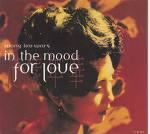English AbstractIn the essay, a hardly discussed yet negotiated middle pattern between abjection and fetishism is suggested to support an intertextual reading between the short story Intersection and the film In the Mood for Love. Resurrecting fetishism as a new and radical mode of spectatorship, Wong Kai-wai’s film displays a nostalgic mood for the liminal space of the 30s Shanghai and 60s Hong Kong. His fetishistic impulse resonates from the sequences of slow motion, stilled images, and role-playing transcending the temporal constraints of traditional film technique. Implicitly refusing abjection for Mrs. Chen, the fetishized female lead, the director works through the psychic process of disavowal. Thus, in the film, neither can Mrs. Chen simply sustain the status of being a fetish object nor can she accept her own constitution as being abject, as shown in her famous line: “We will never be like them.” In this paper, first, I will not only address the question of whether the issue of abjection can shed light on our understanding of Mrs. Chen’s fetishistic desire toward handbags, ties, and other related objects, but also explore the issue of whether her disavowal of cruel reality can destabilize the patriarchal structure. Both the literal and visual text confirm a back-and-forth route to move from psyche to body, from erotics to economics within a frame of fetishistic scopophilia. My second concern, in the literal text of Intersection, details the reflective metaphors of mirror, cinema, and dream, from which I will examine the mechanisms of fetishism and abjection respectively and hope to scrutinize Ah Xing’s dreamy state of desires that constitute misrecognition between libidinal investments and the structural politico-economic reality. Having explored the feminine enigma around of the aforementioned two female leads, finally, I will also tackle the problematic a/object of desire, embodied in the intersections of Ah Xing or Mrs. Chen’s double discursivity that directs a fetishistic attention on the road to fruition, yet, at the same time, cautiously hides and eradicates for the rational sake of protecting the self. However, the object of desire returns repeatedly, not simply to haunt these female subjects, but to take them elsewhere. Articulating the relation between abjection and fetishism, In the Mood for Love and Intersection facilitate reflection on a true object cathexis that recalls a lost maternal memory, a reflective mirror that leads us to the primal trauma and offers healing empowerment.
Keywords: fetishism, abjection, a/object, spectatorship, femininity


 字體:小 中 大
字體:小 中 大










